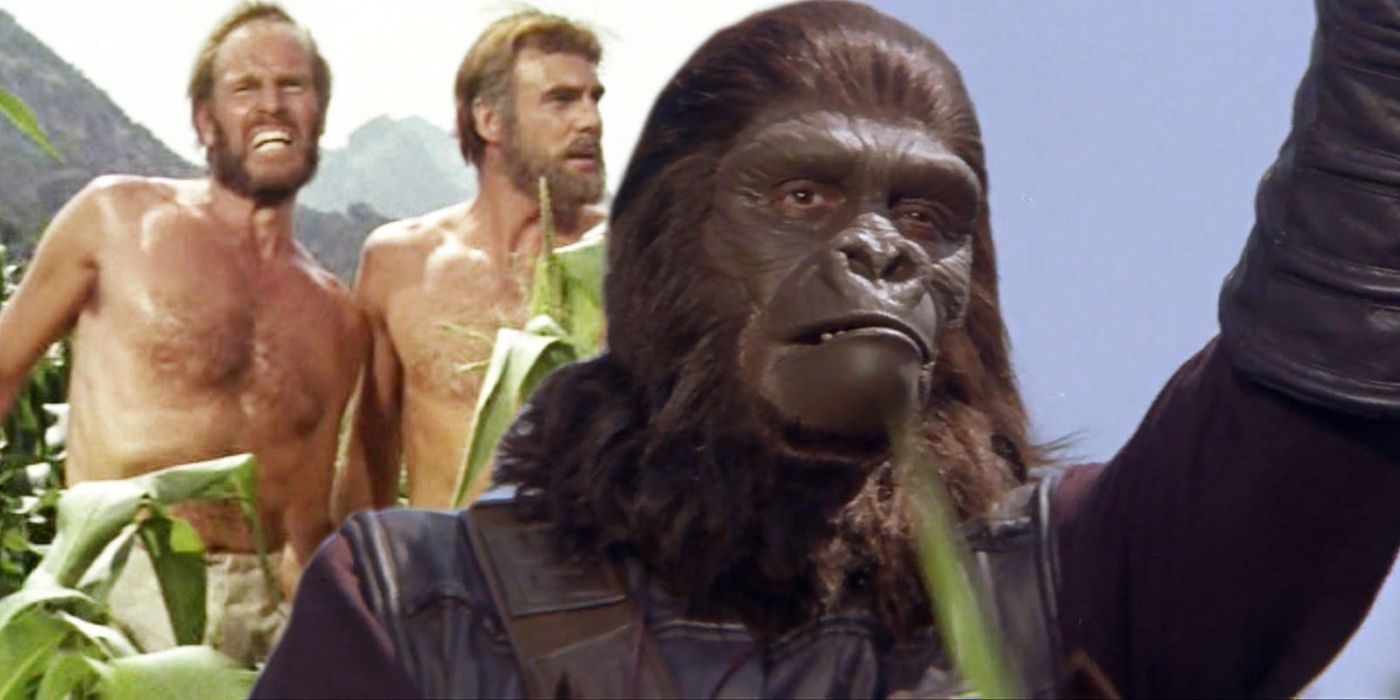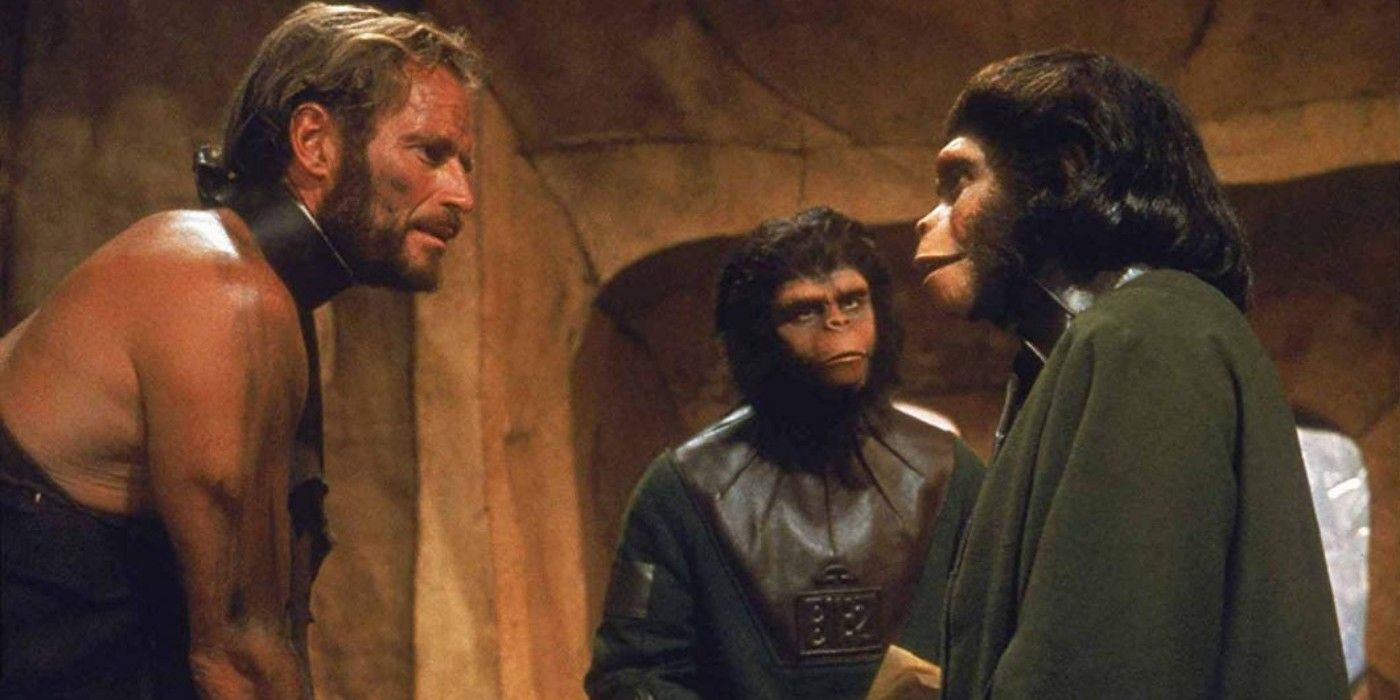Planet of the Apes depicts a future in which humans can't talk, but what's the reason for this level of devolution? The classic 1968 film plunged viewers into a nightmarish world in which evolution had been turned upside down, and apes ruled a post-apocalyptic Earth in which humans had been reduced to little more than primate-level animals subject to hunting, scientific experimentation, and general brutality. In the first two original films, the remnants of humanity are shown to be incapable of speech or any kind of sophisticated communication.
The exact reason for the mental and behavioral downfall of humanity within the Planet of the Apes mythos has long been a source of mystery. The original five films didn't explore the question too deeply, and spinoff media like the two 1970s television shows depicted humans as still capable of speech. The recent Planet of the Apes reboot series that began with 2011's Rise of the Planet of the Apes and concluded with 2017's War for the Planet of the Apes did offer an explanation: the Simian Flu that ravaged the planet and reduced humanity's numbers by the time of Dawn for the Planet of the Apes ended up mutating within the survivors, destroying their vocal cords and, therefore, their ability to talk. However, the relationship the recent trilogy has to the original continuity that began with the 1968 film is still unclear, and none of the original films mentioned a virus.
Discovering the secrets behind humanity's inability to speak in the original Planet of the Apes films involves taking a deep dive into the series' lore. By looking to sources including spinoffs, informational texts, and even the original novel that inspired the movie, a more complete picture of what happened to humankind begins to reveal itself. In the end, the true reason for humans losing their voices comes down to three factors: mutation, subjugation, and demoralization.
As revealed in the finale of the original Planet of the Apes, humanity's end came at their own hands via atomic war. This war, which was fleshed out in multiple comics and short stories, saw much of Earth devastated beyond recognition. Only small pockets of greenery continued to exist, and it was within these pockets that apes begin to build a new civilization with the aid of human labor. As explained in the Planet of the Apes' original ending in Battle for the Planet of the Apes, the chimp that led his people to freedom, Caesar, pushed for equality among humans and apes. Unfortunately, this equality was not to be; over the succeeding centuries, the relationship between the two species continued to degrade.
Humans went from mere laborers to slaves and from slaves to pets. As explained in the Apes expanded universe, generations of demoralization resulted in less intelligence and willpower among humans. In addition to this, exposure to the radiation of the planet's contaminated deserts, or "Forbidden Zones," led to their vocal cords degenerating over time. With each new generation, fewer and fewer humans could speak. Eventually, strict religious practices on the part of the apes forced the humans out into the wild, where they further devolved and became more animal-like.
Although none of this drama has ever been played out onscreen in any of the Planet of the Apes movies, a haunting example of this kind of mental devolution can be found in the book that launched the franchise. French novelist Pierre Boulle's satirical sci-fi classic La Planète des singes (Monkey Planet) was the basis for the 1968 film and featured three astronauts venturing to an alien world populated by intelligent simians. One of the novel's characters was Professor Antelle, a brilliant scientist and leader of the expedition. After the novel's main character, Ulysse, was captured by the apes, Antelle disappeared, only to reappear near the end of the novel living in a cage, his brilliance stripped away. Now living like an animal, the once-genius man was now little more than a beast. It's this same disturbing principle, albeit on a planet-wide scale, that ultimately robbed the humans in the Planet of the Apes film of their voices.


